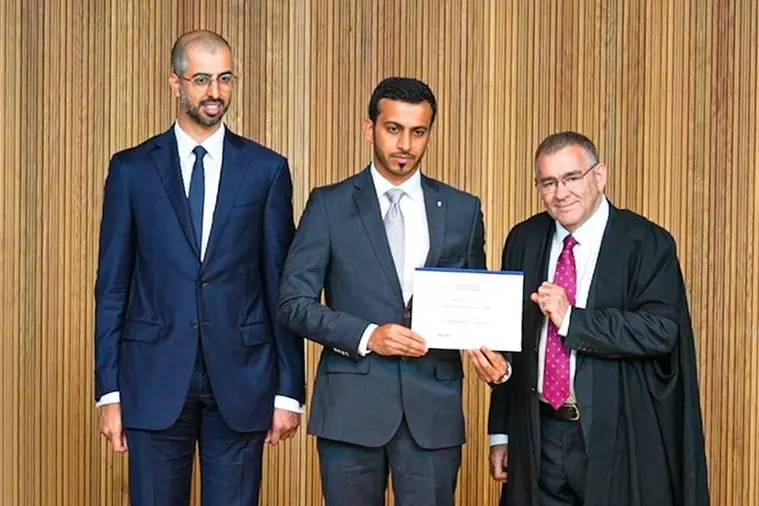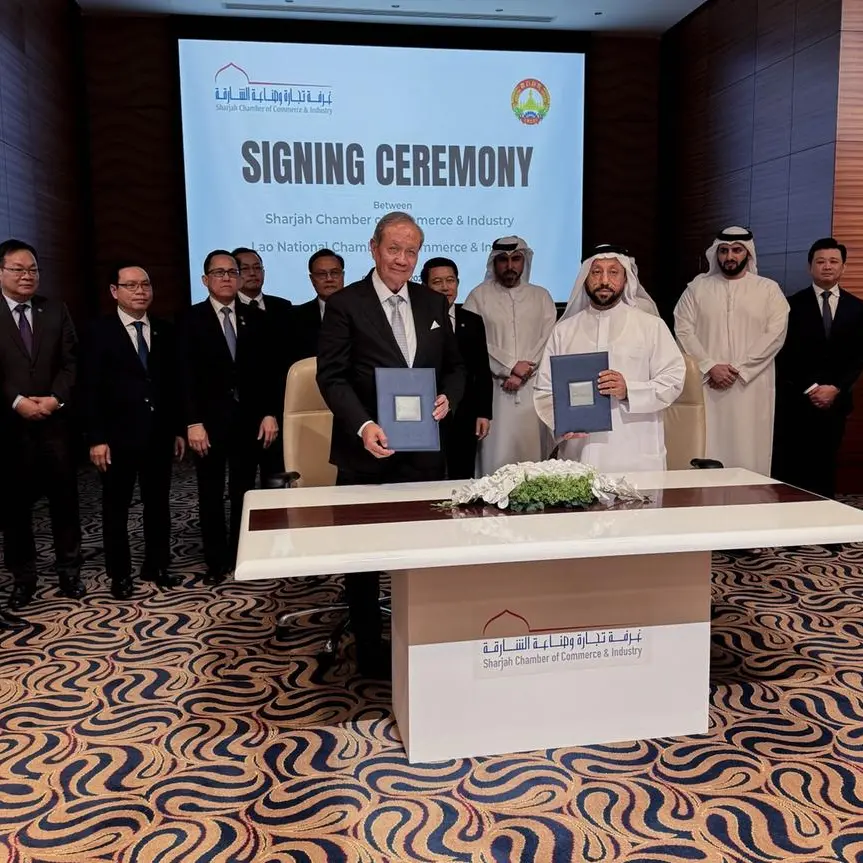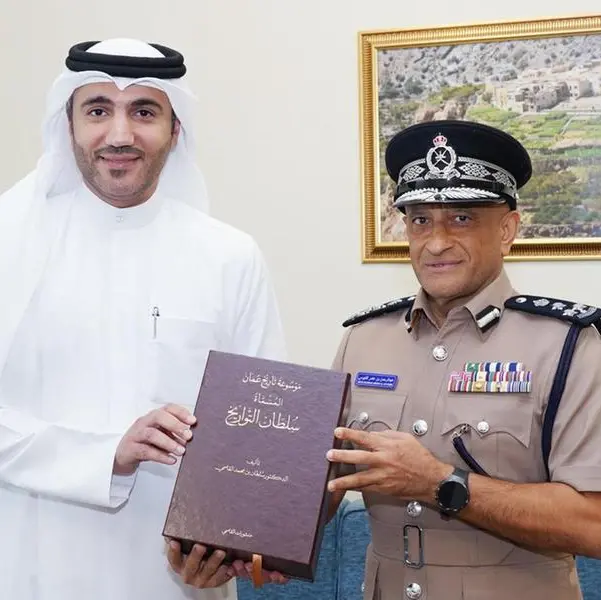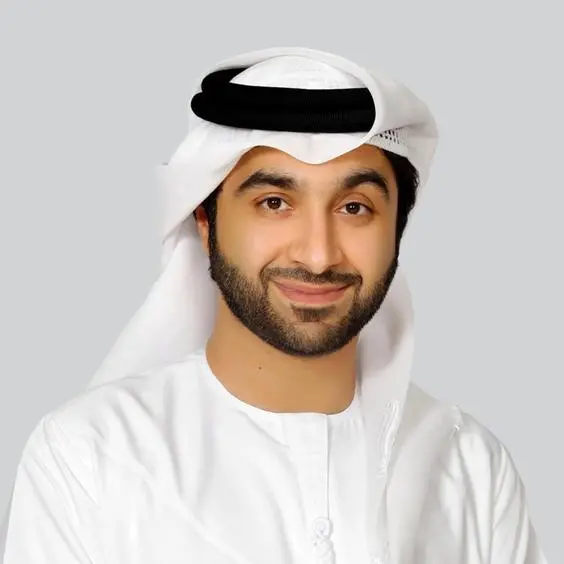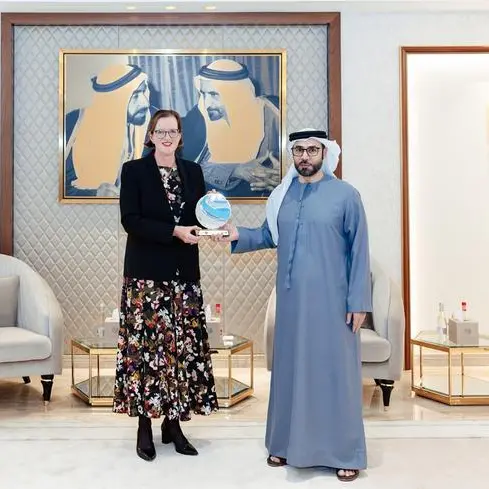PHOTO
Omar Sultan Al Olama:
- The UAE’s vision is the engine to accelerate movements toward the future.
- Empowering talents with the tools necessary to create solutions for future challenges in digital fields
- Designing initiatives and programs in line with the UAE Strategy for Artificial Intelligence 2031
Dubai: The UAE government celebrated 60 experts who graduated from the fourth cohort of the Artificial intelligence program, organized in collaboration between the UAE Minister of State for Artificial intelligence, Digital Economy and Remote Work Applications and Kellogg College in Oxford University, UK.
The program aims to prepare the government and private entities employees for future skills, empower them in Ai techniques to enhance their digital skills, and implement that knowledge in the entities' work models by supporting them with the right tools and knowledge gained through interacting with experts.
The program also focuses on understating the effects of adopting Ai in vital fields, enhancing decision makers' capabilities to analyze information about Ai systems and supporting strategic planning by analyzing security and ethical challenges resulting from the adoption of artificial intelligence.
His Excellency Omar Sultan Al Olama, Minister of State for Artificial Intelligence, Digital Economy, and Remote Work Applications, affirmed that the futuristic vision of His Highness Sheikh Mohammed bin Rashid Al Maktoum, Vice President, Prime Minister of the UAE and Ruler of Dubai, as well as the UAE’s proactive leadership, drives the UAE government to design the best better future for society. The UAE government is working towards reaching a complete digital transformation, through accelerating steps, implementing goals and moving towards the future, we must to reach a complete digital transformation, which depends mainly on integrated efforts and productive cooperation with global companies, leading institutions, and the community in adopting successful digital practices and rapid access.
HE Omar Sultan Al Olama stated that the three previous cohorts have proved that the future is AI, the language is coding, and the government is digital. Succeeding over the past few years, was the purpose in which the UAE government celebrated 60 decision makers, employees, and experts to start a new trend, each in their entity.
Omar Sultan Al Olama further said that the UAE government is constantly designing initiatives and programs in line with the UAE Strategy for Artificial Intelligence 2031 to build capabilities of Emirati experts and develop their skills in various areas. The government seeks to empower talents with the tools necessary to create solutions for future challenges in digital fields.
HE added that building the digital future requires accelerating the implementation of proactive plans for rapid technological developments. Launching programs that spread artificial intelligence knowledge and provide society with digital tools that facilitate work mechanisms in various vital sectors creates the path to a better future for communities. HE congratulated the graduates on achieving this huge milestone that is a steppingstone toward creating the greatest future depending on talents, ideas, projects, innovations, and efforts to build a sustainable society.
His Excellency Saeed Mohammed Al Tayer, MD & CEO of Dubai Electricity and Water Authority (DEWA) said: “We are working under the vision and directives of His Highness Sheikh Mohamed bin Zayed Al Nahyan UAE president and His Highness Sheikh Mohammed bin Rashid Al Maktoum, who believe that UAE talents and youth build nations and play a crucial role in continuing comprehensive flourish that the government has witnessed for decades. Stemming from our belief that the future and its challenges require radical transformation and shifts that keep pace with the developments around us, DEWA started the journey in artificial intelligence in 2017. It is one of the first government entities in Dubai government to adopt self-assessment tools to ensure the ethical use of basic artificial intelligence applications. Through facing challenges, achieving progress, creating future in societies, and providing them with the tools necessary to anticipate challenges and preserve achievements to reach the first positions in multiple fields. We are working in DEWA to establish a positive environment that stimulates creativity and innovation to prepare the next generation of leaders to keep pace with the rapid changes and various global opportunities so that the UAE will be the best country in the world by its centennial in 2071. These collaborations are consistent with enhancing the cadre's skills in the DEWA in the field of Ai to increase the contribution of our employees to the development of several innovations.
Adel Al Redha, Emirates’ Chief Operating Officer, congratulated the Artificial Intelligence Program graduates for their efforts and achievements during the past period. He said: "Emirates is pleased to have a number of its employees participate in the Artificial Intelligence program, which allowed them to develop their technological skills. We would like to thank the Minister of State for Artificial Intelligence, Digital Economy and Remote Work Applications Office and the University of Oxford’s Kellogg College for this unique initiative. There is no doubt that advanced technology, artificial intelligence, and data analysis play a major role in our daily practices, providing better services to our customers and improving work productivity. It is very important to develop our employees’ skills in these fields and provide the appropriate environment and applications to improve their performance and facilitate their work practices. We also invest in, and encourage the introduction of technologies and innovations to always be at the forefront of leading companies, and provide better services and products that keep pace with our ambitions. We wish all participants every success and encourage them to always learn and innovate”.
For his part, Hatem Dowidar, Group CEO, e&, said: “I would like to congratulate all graduates for completing the Artificial Intelligence Programme, contributing to the country’s digital future in transformative ways and bringing about a lasting impact. They represent the next generation of innovators who will help realise the UAE leadership’s vision towards complete digitalisation, ultimately boosting the country’s socio-economic growth.
He added; “Through the Artificial Intelligence Programme, these graduates have been equipped with the skills and capabilities they need in harnessing the power of emerging AI technologies for the betterment of lives. They are the gateway to the future filled with immense possibilities as they ideate and design progressive solutions to tackle AI-related challenges. As a global technology and investment conglomerate, we have always believed in the power of using our transformational digital expertise for the benefit of governments, enterprises, customers, and communities where we operate. It has been an honour to be part of this ambitious Programme.”
Innovative capstones
The program held under the supervision of a group of international experts and specialists, including Dr. Nigel Mehdi, Fellow of Kellogg College; Dr. Robert Collins, Visiting Fellow of Kellogg College; Eur Ing David Toman, Doctoral Researcher Linacre College; Marcus Du Sautoy ,Professor for the Public Understanding of Science and Professor of Mathematics, Fellow of New College; and Philip N Howard, Professor of Internet Studies Fellow of Balliol College.
The innovative capstone projects resulted from weeks of learning, training, and practicing through the Artificial Intelligence Program, which focused on two main tracks: the technical track and the entrepreneurship track. Each track had lectures and interactive physical and virtual workshops to provide experts with artificial intelligence methods it utilizes to facilitate communities' lives. Also, some lectures improve work models, which contributes to the innovation of new practices and enhances the UAE's global position in various fields of modern technology.
In interviews with members of the fourth cohort of the Artificial Intelligence Program, Khawla Sultan Lootah, Director of Information Technology at the Ruler's Court in Dubai, said that this program played a significant role in expanding the knowledge of how to use artificial intelligence in designing solutions and models with technical, and administrative aspects in organized and easy-to-understand methods. That comes with a great impact on each entity's work and facilitates the life of the community in receiving services.
Khawla Lootah said that the Artificial Intelligence Program had accomplished a remarkable achievement in graduating a cohort of people with comprehensive experiences in technical, entrepreneurship, and administration fields. This knowledge enables graduates to optimally manage artificial intelligence in their entities and a multi-skilled work team to design an integrated model in all administrative, technical, and ethical aspects.
Asma Al Bannay, A senior technical engineer at Emirates, one of the program participants, said: "The program provided new perspectives and introduced us to the strengths and weaknesses in the entities' work models. This knowledge allows us to efficiently develop projects to solve challenges with the right tools and equipment to implement them and achieve the highest positive impact.
The top capstone, designed by experts in AI programs, was the project of Emirates Global Aluminum (EGA) which is a system of predictive maintenance of chemical engineering process that determines whether the Kneader machine will fail over the days using Ai techniques. The second top capstone focused on creating an ai system that can be used by all entities that automatically identifies vulnerabilities to improve workflow processes and ensure security in digital utilization.
The Artificial Intelligence Program has trained more than 360 experts over the past three cohorts from over 100 government and private entities. The program played an outstanding role in building their capabilities and skills in artificial intelligence and data science. That enables the national cadres to make future digital decisions and adopt artificial intelligence technology by providing an environment that includes international trainers, consultants, and supervisors of graduation projects and organizing trips inside and outside the country to widen their experience.
-Ends-
